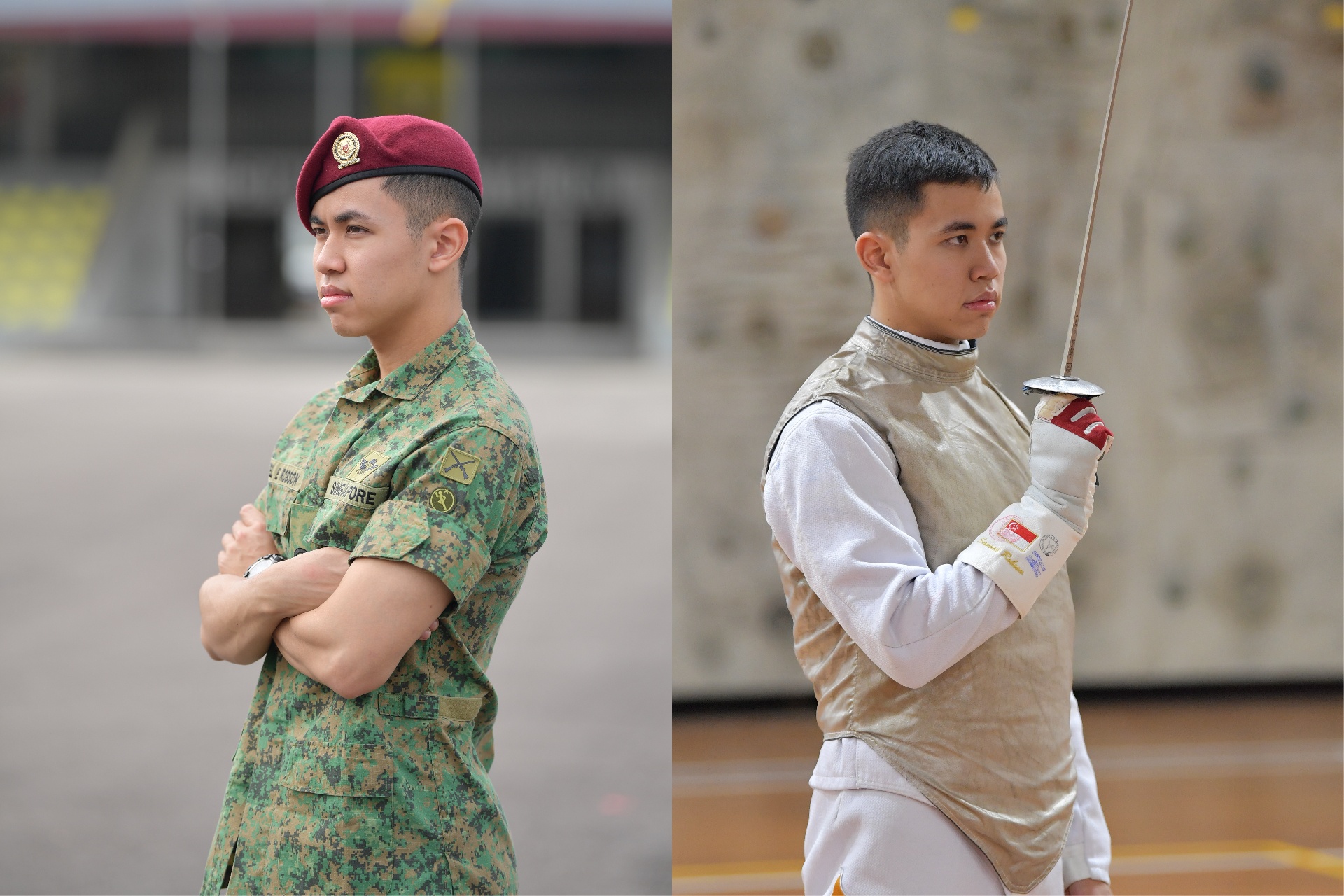PEOPLE
LONGEST-SERVING FROGMAN IN NDU CONTINUES TO TRAIN YOUNG TADPOLES
02 Dec 2021
He went through tough training that only the fittest could endure; now he continues to ensure high training standards among young naval divers.
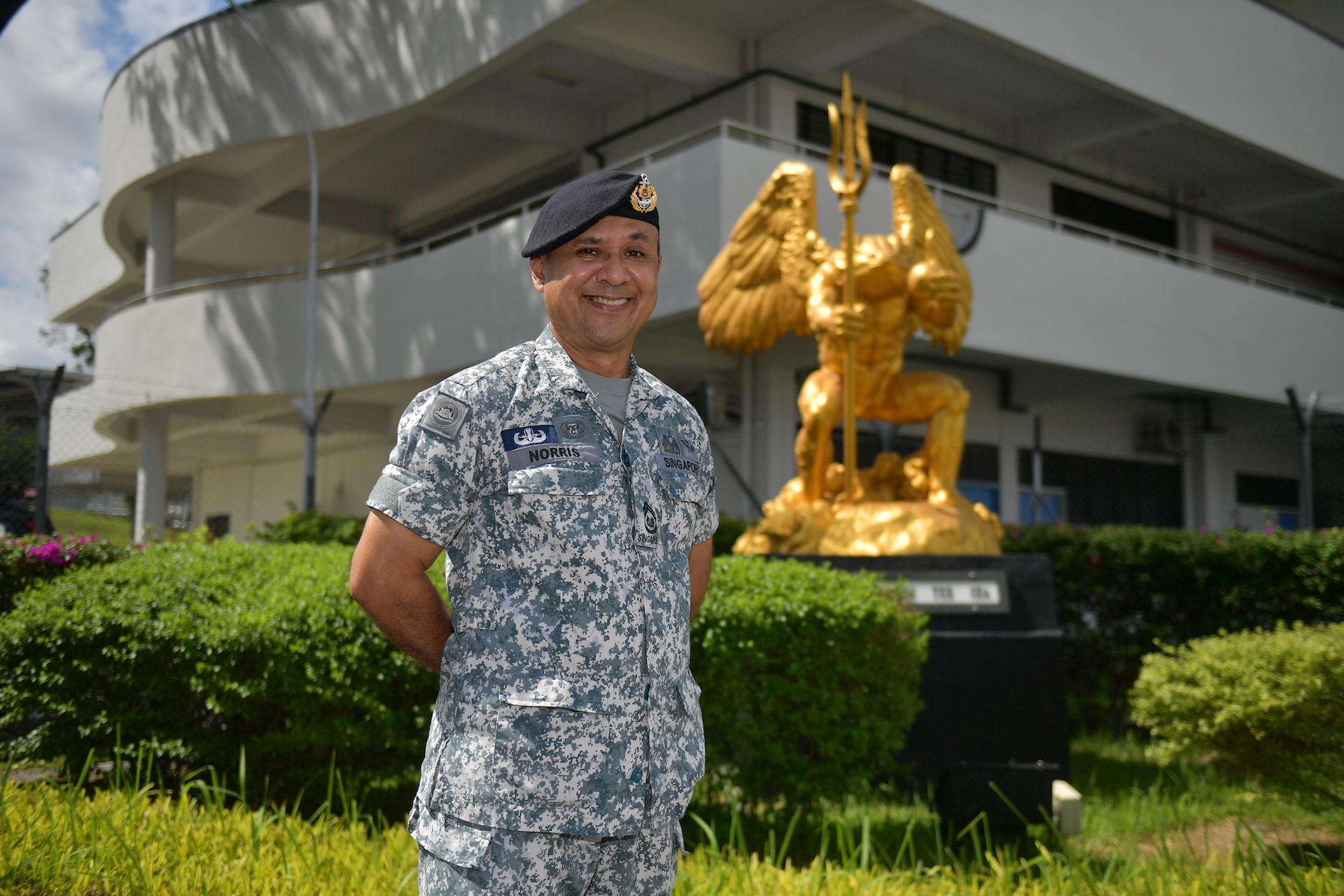
When 1st Warrant Officer (1WO) Norris Lucius was a young naval diver in the late 1980s, training involved plenty of adapting to unexpected situations on the fly.
He was once in a theory class about demolitions, when his then-Officer Commanding (OC) saw the weather turn bad and quickly called for the lesson to end – so that everyone could experience swimming in rough seas instead.
"It became a surface swim where we did 'explosives'-towing and had to swim 2km with about 40kg of equipment!" recalled 1WO Lucius.
"But the OC and instructors also joined in. Whenever we swam and we ran, they would go through it with us," he added.
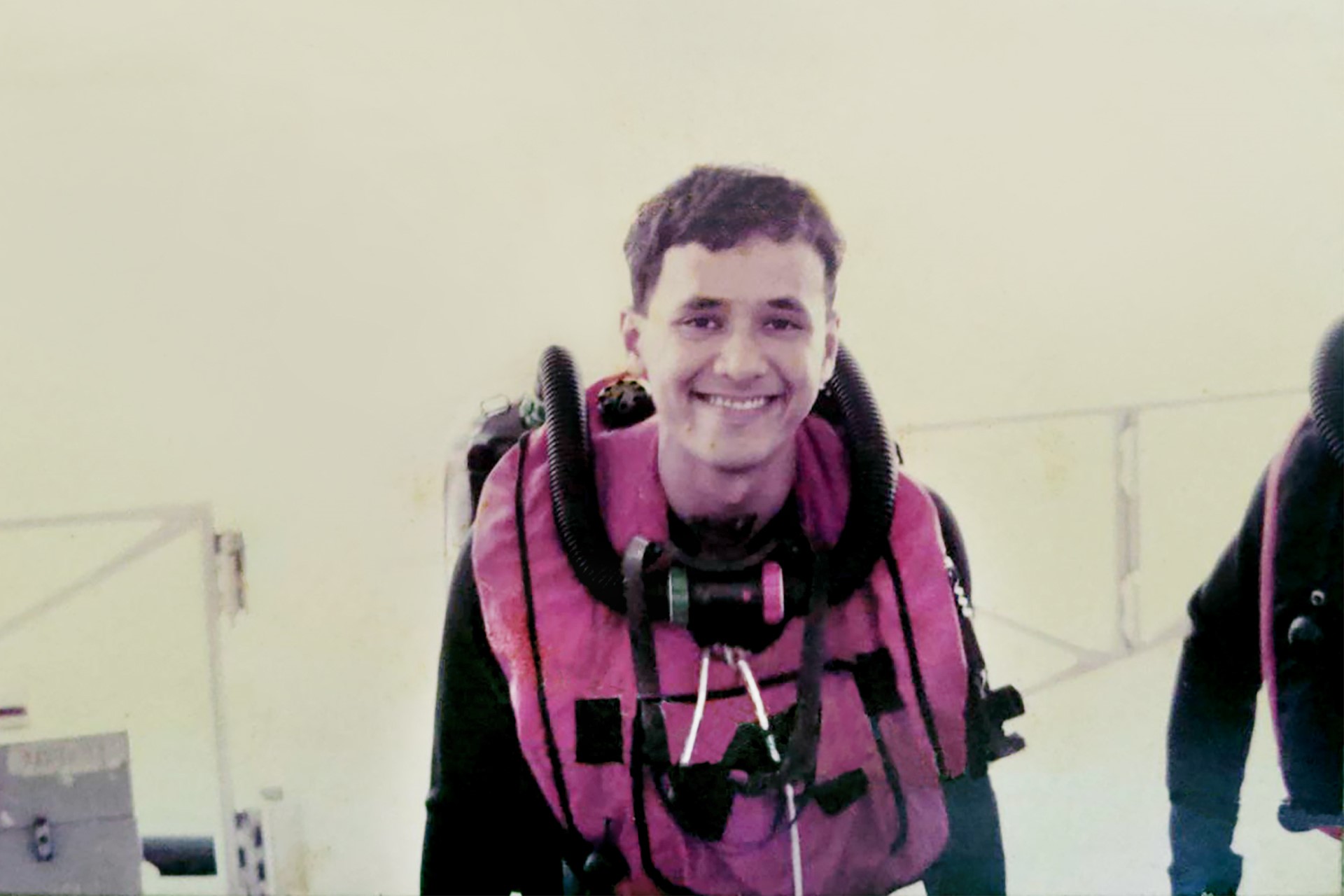
Those "tadpole" days are over for 1WO Lucius, who joined the Naval Diving Unit (NDU) with its pioneer batch of Full-Time National Serviceman (NSF) divers in 1987.
Now, the 52-year-old is an Instructor Development Warrant
Officer, who oversees the qualification and training of more than 50
instructors. He is also currently the longest-serving naval diver still
in NDU, with 34 years under his belt.
From pioneer NSF batch to training latest batch
1WO Lucius enlisted into the Navy in 1987 under the Learn As You Earn scheme as part of the (now defunct) Singapore Armed Forces' Boys' School.
His father was an Air Force officer and his second eldest brother an Army combat engineer, but he liked the idea of being able to get on board ships. When he heard that NDU was recruiting, he gave it a try and fared well in the selection.
He was among a total of 35 boys, comprising both Regulars and NSFs, who made the cut – the largest cohort then. Previous NDU batches consisted entirely of Regulars.

1WO Lucius served as an operational diver for a decade, and continually upgraded his skills as he was sent to courses in ordnance and munitions disposal in the United States (US) and United Kingdom.
He then became a diving instructor and also served stints in NDU's Operations and Intelligence branches.
In late 2015, he returned to the Frogman School as an OC, before assuming his current role in instructor development in 2019.
"In the past, we went through quite a fair bit before we found that sweet spot in training.
"Today, things are more organised and we see vast improvement in safety, equipping and resources. It's more structured, but not easier – there's a better balance between hard training and rest."
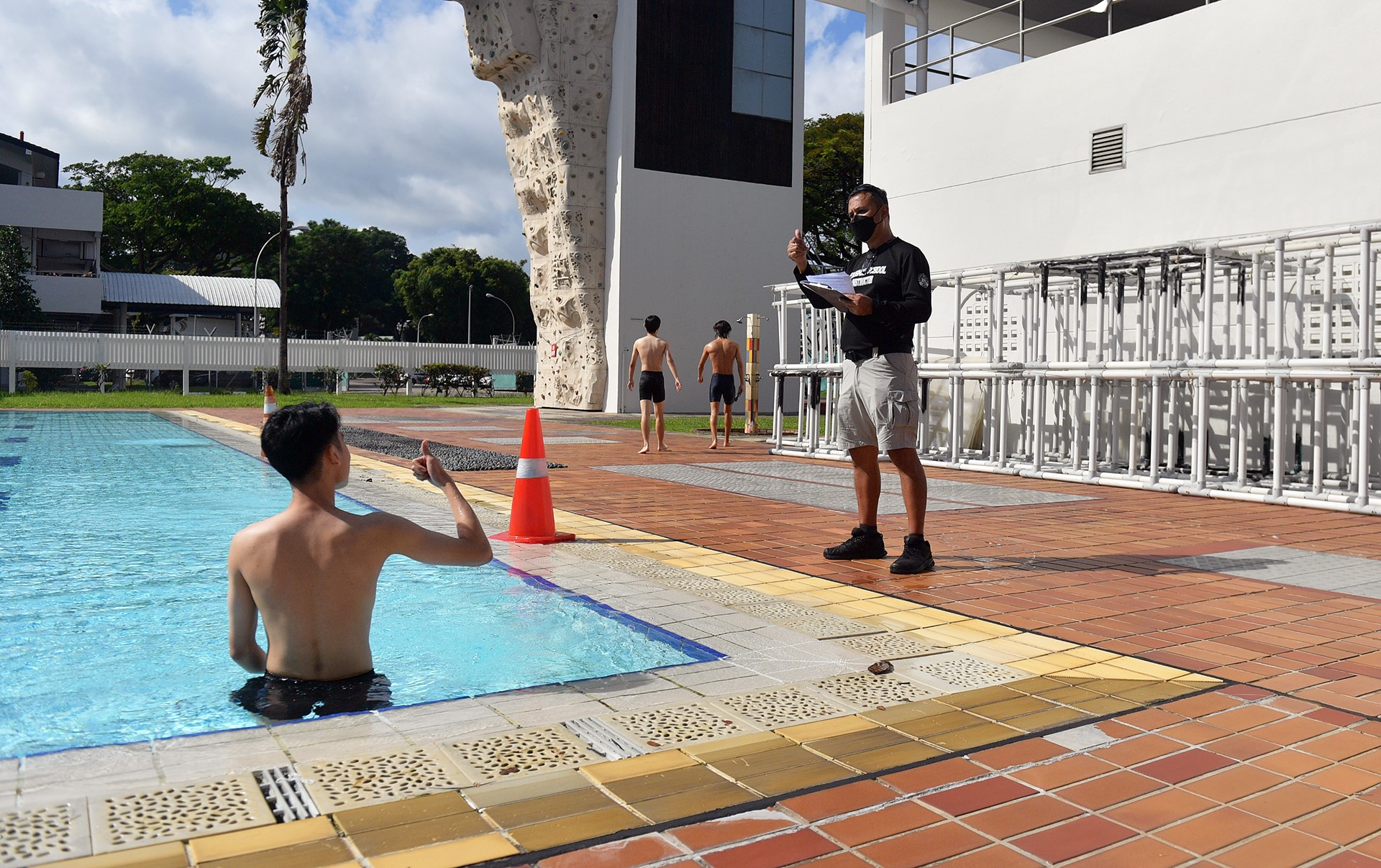
Working against the tide
One of 1WO Lucius' biggest deployments as an operational diver was clearing World War II ordnance in the channel between Pulau Brani and Sentosa in 1990.
It was an undertaking that involved daily shifts over a month to clear the waters.
"At the time, we didn't have technology to locate the ordnance. So, we were searching using more primitive manual search techniques," he said.
However, his most challenging task to date was as a diving supervisor during a search and recovery mission in the South China Sea later in the 1990s.
Though the divers were based on board a Navy vessel, they would head out on a small boat to lower the acoustic locater (a device that uses sound to determine something's direction and distance) to search for the missing object.
This meant bearing the full brunt of the rough sea state, over long periods of time. "After several days, there were times when the team felt demoralised, especially since we were searching in such a large area," said 1WO Lucius.
"So, I had to talk to them, give them inspiration, and arrange for hot drinks so they could carry on with the tasks. Despite the adversity, we eventually managed to find it after almost two weeks out at sea."
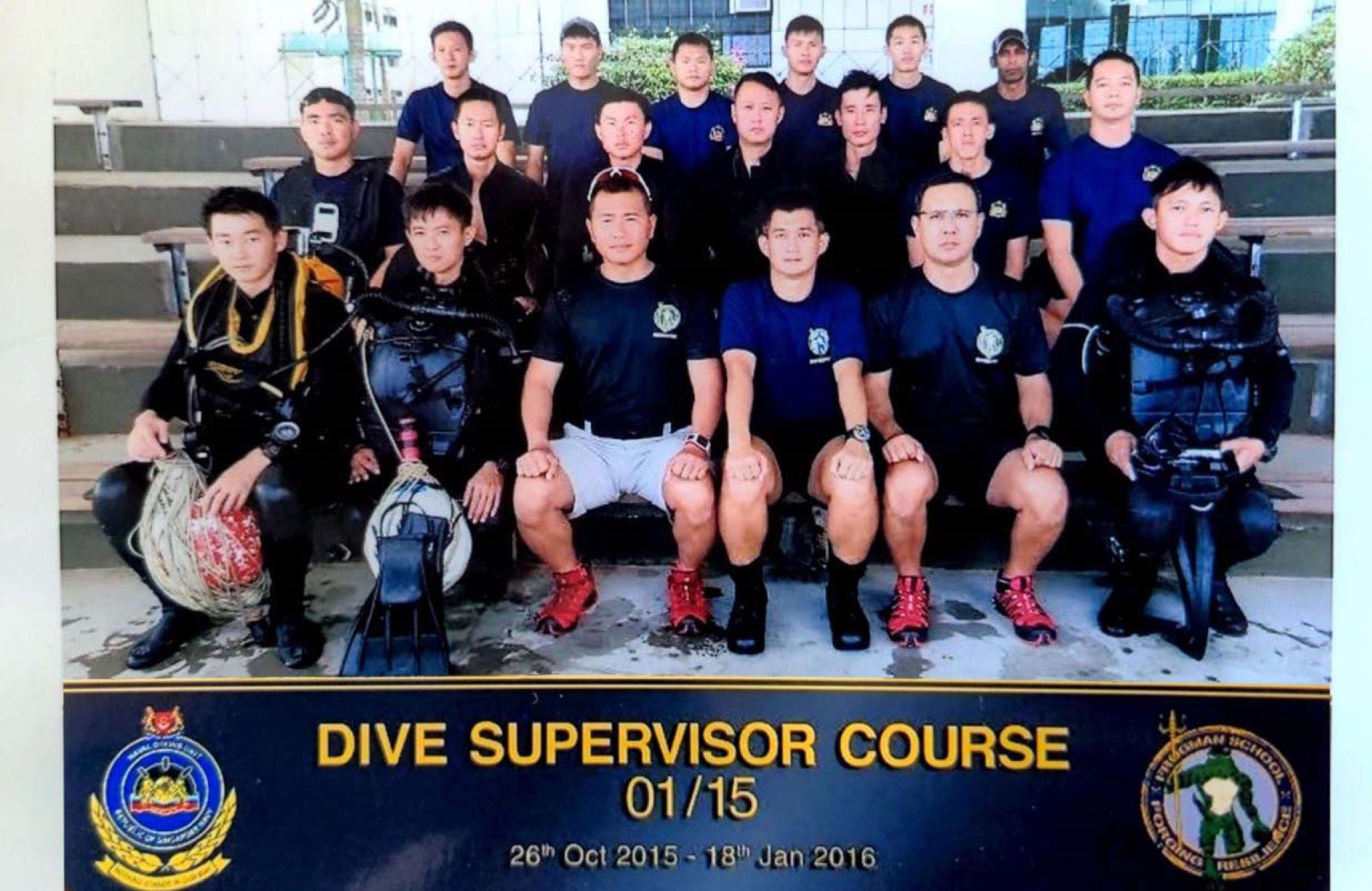
Hooyah! to team spirit
The father-of-one credits the strong brotherhood in the naval diving community, along with good supervisors, for his long stint in NDU.
For one, 1WO Lucius' superiors were open to his suggestions to make changes in the mission profile that trainees go through during Team Building Week, which is also informally known as "Hell Week".
The changes – which involved making the missions more cognitive and time-sensitive – have since been implemented in all Team Building Week courses.

1WO Lucius admits that his own style as a leader has also changed since his early days. While he used to be extremely strict with trainees, he grew more understanding when he became an OC.
He said with a laugh: "Sometimes when you are the laojiao (older and more experienced), they dare not come to you. So, I like to check in on the guys and see whether they are facing any challenges."
He also has a passion for training new divers, and hopes to help them find purpose in their work.
"I believe to always be purposeful and add meaning to whatever we do as a leader to the younger generation of divers.
"We are the walking examples that our trainees look at, so we have to always maintain our mindset on doing things right."
ALSO READ IN PEOPLE
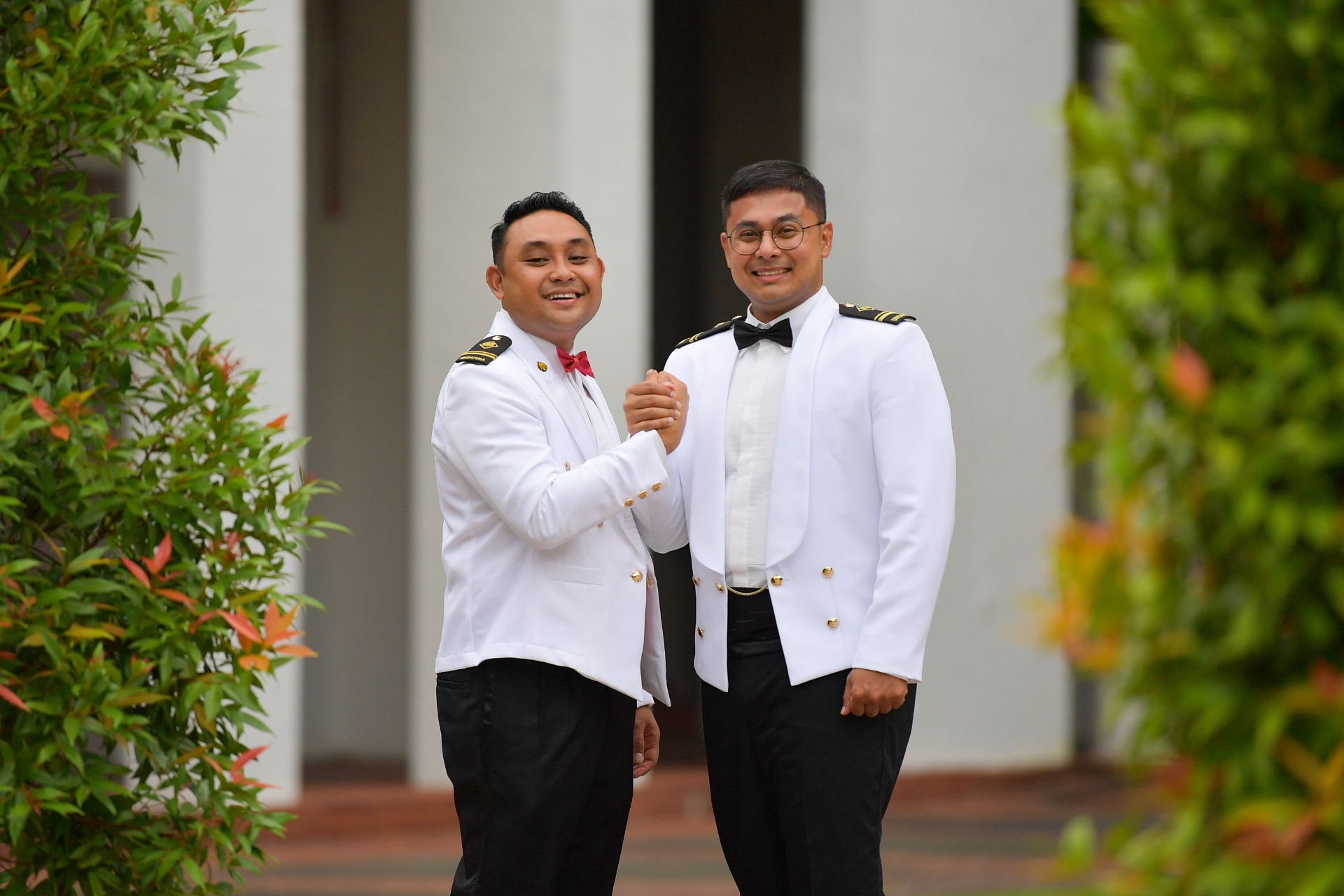
Bringing their civilian expertise to contribute more in NS
22 Jan 2026
On 21 Jan, the SAF welcomed its largest group of NSmen graduating under the Enhanced Expertise Deployment Scheme. Meet ME4 (NS) Muhammad Arief Aditya and ME4 (NS) Mohamed Najid Bin Mohamed Sultan, who are among these newly appointed military experts.
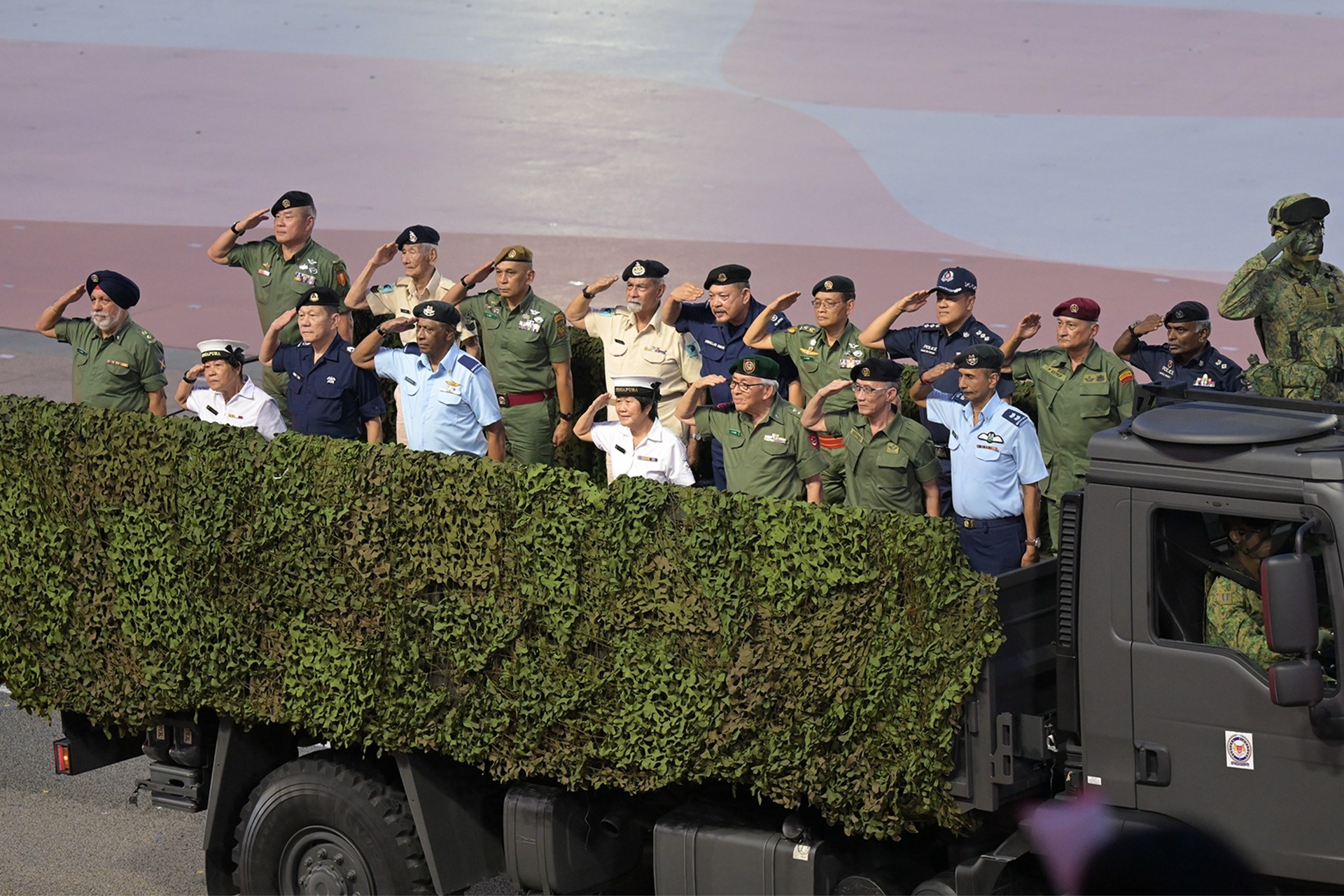
Guardians of legacy
15 Dec 2025
He helped build the RSAF’s first aircraft. She was one of the first women to join the navy. He managed communication crises in a time when a pager beep meant trouble. Meet these veterans who saw Singapore through turbulent times to build a strong SAF.
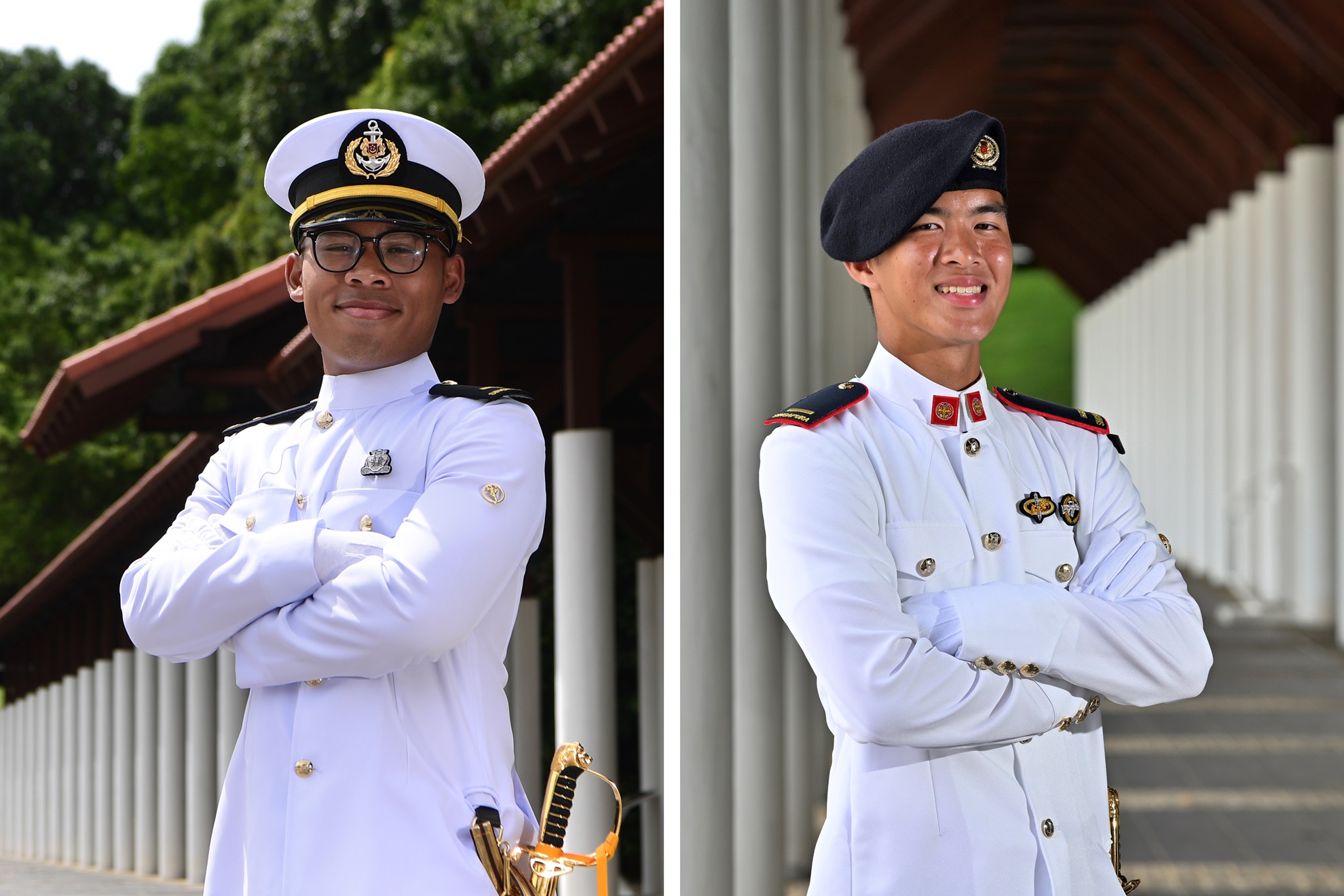
Rising above the tide & stepping forward to lead
13 Dec 2025
They’re among the SAF’s latest batch of officer graduands this year. Meet 2LT Mohamad Wira Kuriniawan and 2LT Ryan Ong, who will be heading to the Navy’s 180 Squadron and 1st Battalion, Singapore Guards respectively.


